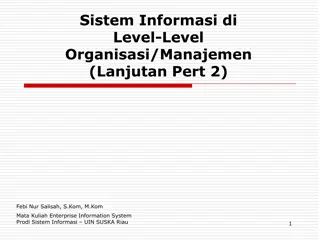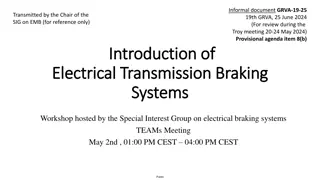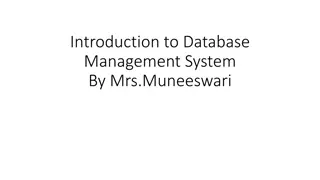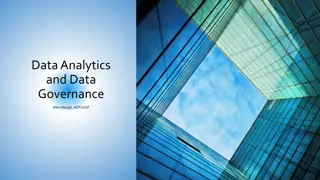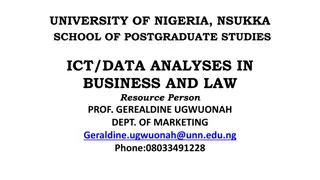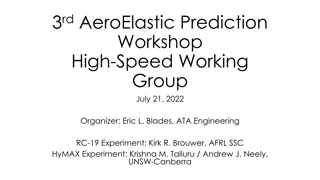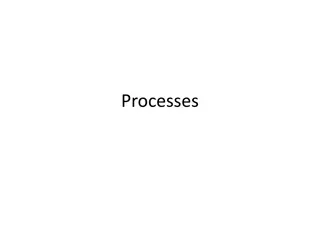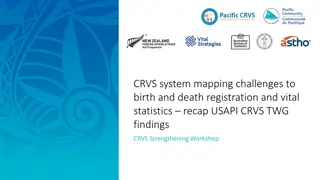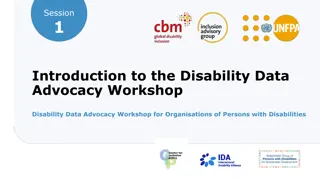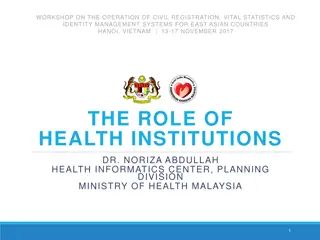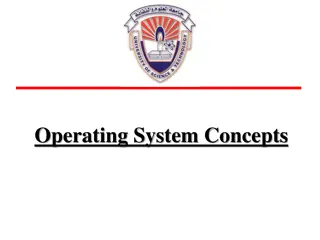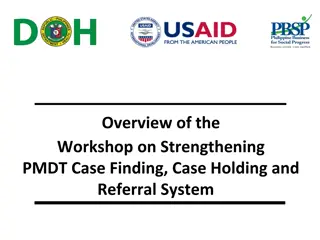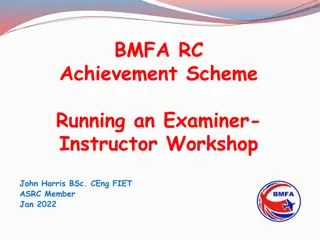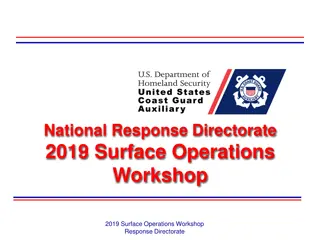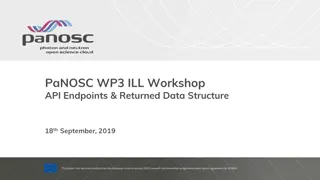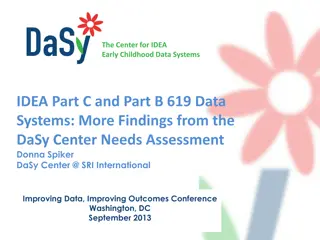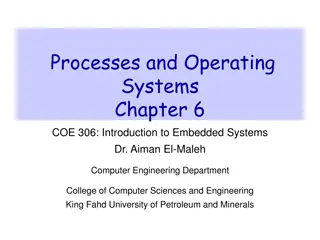Effective Data Processes and Systems Workshop Overview
The workshop covers the importance of effective data processes and systems, defining data processes, scenarios, reflection, feedback, and more based on national guidance and research. Participants learn to ensure accuracy, update data regularly, and integrate data cycles into improvement cycles for better outcomes.
Download Presentation

Please find below an Image/Link to download the presentation.
The content on the website is provided AS IS for your information and personal use only. It may not be sold, licensed, or shared on other websites without obtaining consent from the author.If you encounter any issues during the download, it is possible that the publisher has removed the file from their server.
You are allowed to download the files provided on this website for personal or commercial use, subject to the condition that they are used lawfully. All files are the property of their respective owners.
The content on the website is provided AS IS for your information and personal use only. It may not be sold, licensed, or shared on other websites without obtaining consent from the author.
E N D
Presentation Transcript
Effective use of data Effective use of data 3. Creating effective processes and systems 3. Creating effective processes and systems Practitioners
The national model of professional learning The national model of professional learning The national model of professional learning | Professional Learning | Education Scotland
Draft Group Agreement and Protocols Draft Group Agreement and Protocols Work together Learn from, with, and on behalf of each other Create a safe space to share ideas and build learning Agree that everyone is an equal and valued participant Remain in the room (emails and phone protocol).
Connector In groups/pairs: Share the grown-up job you thought you wanted to do when you were a child. TASK
Aims Aims In this workshop we will consider: the importance of effective data processes and systems what we mean by data processes and systems how to ensure data processes and systems are effective; and approaches to data processes and systems within different scenarios.
Content coverage National guidance and research Defining data processes Effective data processes Data systems Scenarios activity Reflection and feedback
Re Re- -cap cap In workshop 1 we looked at the purpose and use of data including: the meaning of data and evidence, the ways in which data is used and what we mean by big and small data. In workshop 2 we considered different categories of data and how these may be intersected to support improvement.
Rapid Evidence Review Paper Rapid Evidence Review Paper Section three of the Education Scotland Rapid Evidence Review on creating effective processes and systems highlights that: It is important to be clear which data to gather, how this collected and by whom. Data must be accurate, and procedures should be built in to allow data to be regularly checked and updated. Consideration must be given to how data collection or the data cycle fits into the improvement cycle. Tracking systems should be intuitive and minimise workload, but sophisticated enough to allow educators to explore patterns, trends and understand needs.
GTCS GTCS Standards for Full Registration and Career Standards for Full Registration and Career Long Professional Learning Long Professional Learning Curriculum and Pedagogy 3.1.1 - Plan effectively to meet learners needs 3.1.4 - Effectively employ assessment, evaluate progress, recording and reporting as an integral part of the teaching process to support and enhance learning. Professional Learning 3.3.2 - Engage in reflective practice to develop and advance career-long professional learning. GTCS The Standard for Full Registration GTCS - The Standard for Career-Long Professional Learning
HGIOS 4 Staff make effective use of current available data on levels of child poverty and apply this to ensure equity (1.5) All teachers have well-developed skills of data analysis which are focused on improvement (2.3) We use data to evaluate the effectiveness of interventions designed to improve outcomes for all learners (2.3)
What are data processes? What are data processes? "The carrying out of operations on data, especially by a computer, to retrieve, transform, or classify information" Oxford Dictionary
What do we mean by data processes? What do we mean by data processes? Assessment data: Gathering information from tests, quizzes, and other assessments to evaluate learner's understanding and progress in specific subjects or skills. Census data: Inputting demographic pupil information used to understand the progress and achievement of groups and individuals. Attendance records: Tracking learner's attendance to monitor regularity and identify potential issues with engagement, lateness or absence. Grading systems: Recording grades used to assess and analyse learner's achievement and inform instructional decisions.
It is important to be clear about which data to gather, how this is collected and by whom. Consideration should be given to streamlining wherever possible. Collection should not outweigh use. Education Scotland Rapid Evidence Review
Reflecting on data processes Reflecting on data processes Identify three or four different data processes that you have in our school/establishment. How would you rate their effectiveness on a scale of 0-5 and why? Process Rating Reason
Developing effective data processes Developing effective data processes Before gathering data, it is important to consider why we need the information. It may help to ask: o What impact do we want the data to have? o How do we want to use the data? o Do we already collect this data in a way that we could easily use or adapt? Understanding why will help us to develop appropriate data processes and reduce the risk of collecting data without a clear purpose.
Developing effective data processes Developing effective data processes - - part 2 part 2 It is important to consider who will be gathering the data and how the data will be stored. It may help to think about who will need access to the data, how often it will need to be collected and whether data needs to be recorded in a consistent way to support analysis. It is important to consider the accuracy of data. For example, it is difficult to analyse attainment data by demographic information if the information is incomplete or inaccurate.
Developing effective data processes Developing effective data processes part 3 part 3 We need to ensure that the data we collect is processed in accordance with data protection law, General Data Protection Regulation (GDPR) which requires information to be: processed fairly, lawfully and transparently collected for specified, explicit and legitimate purposes adequate, relevant and limited to what is necessary for the purpose of processing accurate and kept up to date kept in a form which permits identification for no longer than necessary processed in a manner that ensures appropriate security Please refer to your local authority policy on this.
A BAD SYSTEM WILL BEAT A GOOD PERSON EVERY TIME W E Deming
Data systems Data systems A system is a set of things working together as parts of a mechanism or an interconnecting network; a complex whole. A system is made up of people, processes and resources. In education there are many different data systems. Whole school examples might include tracking and monitoring of whole school attainment, attendance or wider achievement. At a classroom level, data systems might include tracking and monitoring interventions, tracking individual progress in a subject through a level or completing and analysing a class health and wellbeing survey.
Data systems Data systems part 2 part 2 A system may also refer to a specific database into which information is entered or a tool that supports data insight or analysis. There are many different databases used by schools and local authorities to manage data. INSIGHT is an example of system tool that is used across Scotland to analyse pupil attainment through the senior phase. The Scottish Index of Multiple Deprivation (SIMD) is a national tool that provides information on geographical areas of least and most deprivation across Scotland.
Effective tracking and monitoring systems Effective tracking and monitoring systems Education Scotland have developed a resource to support schools in developing effective tracking and monitoring systems. The link can be accessed through the QR code. Resources to support effective tracking and monitoring | Resources | Education Scotland
Scenarios Activity Scenarios Activity Pick one of the scenarios below and discuss in your groups: 1. I am carrying out a practitioner enquiry which is aiming to explore the benefits of using retrieval practice in a particular curricular area. How can I effectively collect, process and analyse data about the impact of this approach? 2. I have noticed a lack of engagement in reading for enjoyment within my class. I would like to explore the reasons for this and try to improve engagement. What systems and processes could I utilise to help me achieve this? 3. I have noticed an increase in homework tasks not being completed and am not sure why this has changed. What systems and processes could I put in place in order to understand the reasons for this and address them?
What do you need to know to make improvement? Data cycle Data cycle What actions will you take? What data can you collect? Data How will you use the data to make decisions? How will you collect the data? How will you know if you have collected the right data? When will you collect the data? How will you store the data?
Aims review Aims review In this workshop we will consider: the importance of effective data processes and systems what we mean by data processes and systems how to ensure data processes and systems are effective; and approaches to data processes and systems within different scenarios.
Individual Reflection Activity Individual Reflection Activity Think about the things we have covered today. Why are data processes and systems important? Are there any actions you can take in your class or setting to make your data processes and systems more effective?
Feedback Feedback Insert you own evaluation code here






